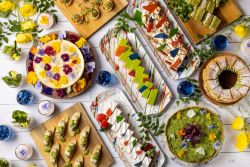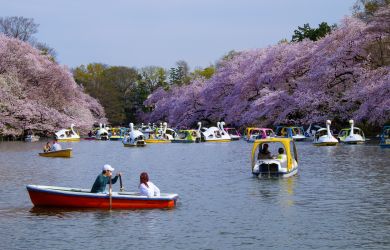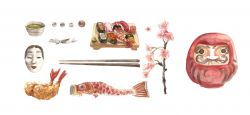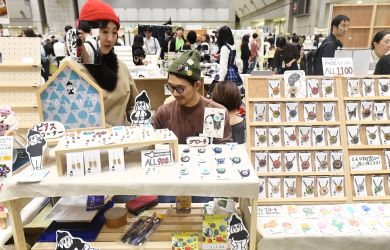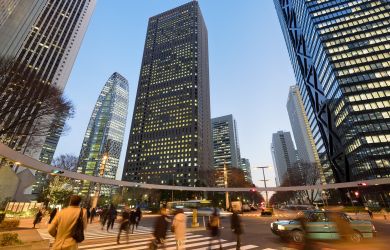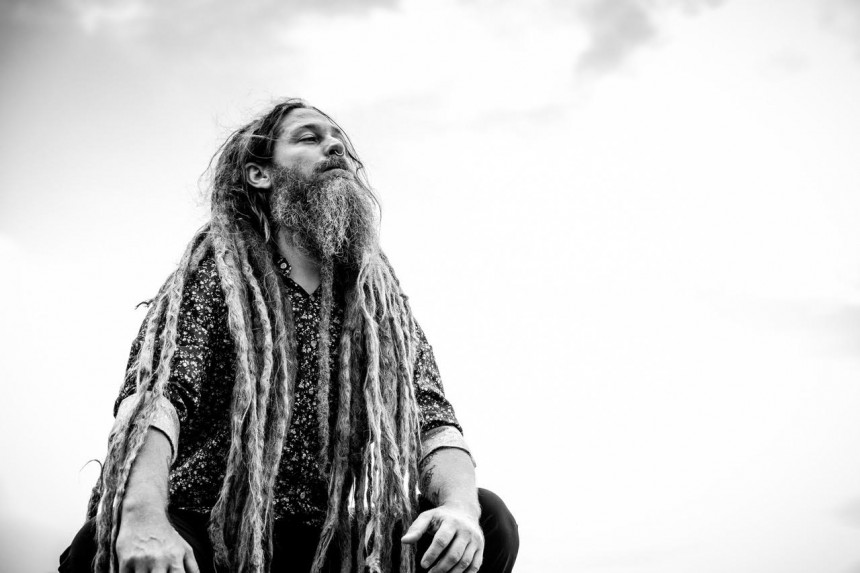
February 17, 2020
Where His Path Goes
Mike Love on reggae, Apple Music and coming to Japan
Like the title of his hit song “Permanent Holiday” suggests, the core of Mike Love’s music has always been a reminder to enjoy life, take care of ourselves and step back from the chains modern society imposes on us. Influenced by both the natural landscape of his island home O’ahu in Hawaii, and the giants of reggae and Rastafari music, the artist’s sound is rooted in spirituality, energy and freedom. Ever-following wherever the flow of his career takes him, Love will be performing his Japan debut in Tokyo Feb. 25, with an extra show just announced to take place in Sendai, Feb. 26.
Metropolis: How did you know that the path of a musician was one you would pursue?
Mike Love: My earliest memories are of making music. I’ve been passionate about singing and playing all my life. It’s just something I’ve always done, in envelopes every moment of my existence. When it came time to start thinking about a career, there was nothing else I even considered, it was only ever music that I wanted to do.
M: Your website bio starts: “In this modern age of music, genres blend together as naturally as the river flows into the sea.” Listeners will detect touches of classic rock, blues, jazz and more in your work. Why is it that the music of Reggae and Rastafari has come to be the strongest influence for you?
ML: Reggae music became the focus of my journey at a very pivotal point in my life. I was going through a spiritual awakening and Reggae spoke to everything I was going through. It’s a music full of love, revolution, free thought and strength. Even as I started to weave all of my influences back into my music, I’ve always retained the spirit of the message of Reggae and Rastafari in everything I do.
M: Your latest release is your EP Mike Love Live @ Sugarshack Sessions in November 2019. How was that creative process compared to your other studio work?
ML: It was the complete opposite. It was just a stripped down live video session we did one day. We did one take of each song and that was it. Everything we do in the studio is very different, doing take after take, trying different things until we get it right and capture the magic. Live sessions have their own kind of magic though, it’s like well, if we screw this up it’s gonna be out there in the world forever, so let’s focus!
M: This EP was a live session, but with the rise of the digital world, more and more of our music consumption is online. What’s your opinion of what the music industry is becoming today? Are live shows still essential to your music?
ML: I really love the direction that things have gone. Music is more accessible to people than ever. Most people primarily use subscription services like Apple Music and Spotify now, so if they want to check out your album, they don’t actually have to buy it first. I think that leads to a lot of people testing the waters with music they might never have listened to, but end up loving. Of course, live shows will always be crucial, because they are about a shared exchange of energy. Every time we play these songs they take on new forms because of the energy and the input of all the people experiencing them. It’s a meditation, it’s a release. It’s healing. People will always need that.
M: Of course the classics like Bob Marley, The Gladiators, Israel Vibrations, The Congos, and The Abyssinians must be a major inspiration for you, but what new artists have you been appreciating recently?
ML: Those are for sure some of my main influences. I don’t listen to a lot of modern reggae, honestly. I like some of it, but none of it really hits me like the classics. I’ve been listening to a lot more soul, R&B, folk, indie rock and rap lately than anything else. I make so much music though, that often when I have time to listen, I just appreciate silence. It’s kind of an interesting balance and reflection. It kind of feels weird to have this amazing, massive experience of playing a show and then go right into listening to music afterwards; sometimes I just need a little quiet to reflect.
M: Will this be your first time in Japan? What are you looking forward to about traveling and performing here?
ML: This will be my first time performing in Japan. Growing up in Hawaii there’s of course a big influence of Japanese culture here. I’ve always been drawn to it. My wife is half Japanese, although she was born here [Hawaii] and grew up in Washington. I’ve heard so much about the hospitality and the attentiveness of Japanese audiences. I can’t wait to share my gifts there!
M: Why do you think that your music can resonate across so many cultures and enable you to tour so internationally?
ML: I think the messages are universal, and that infuses itself into the energy and the feeling of the songs. Even when people don’t speak the language and don’t understand the lyrics they still seem to grasp the meaning and the intention of the music. It’s a great blessing, especially with the success we’ve had on the internet. That’s really been the key to people tapping in to what we’re doing.
M: Where do you see your journey taking you in the future?
ML: I’ve never really been one for planning. I kind of go where my path takes me. I can tell you one thing: I never imagined I would be playing music in Japan, or any of the places I’ve been for that matter. All I ever wanted to do was make music that lifted people up and helped them through, guided them back on track to their own chosen paths. All of this has just been laid out before me and I’m just along for the ride.
Feb 26 (Wed)
7:30pm
Feb 25 (Tue)
7pm
